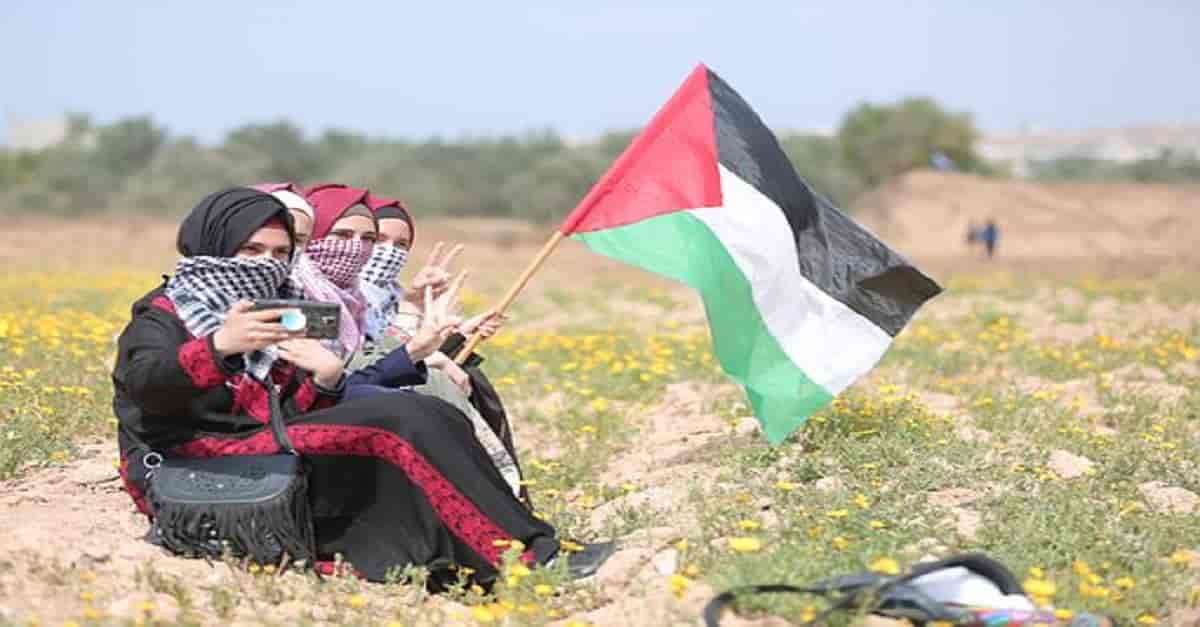Why Muslims love Palestine?

If someone reckons that We love Palestine because of Arabs then he is at FALSE. So, why Muslims love Palestine? History exhibited to us that All the great people who defended and conquered Palestine were non-Arabs. Palestine is an Islamic state and also considered a country by UNO.
Table of Contents
We love Palestine because of Qudus
We love Palestine because of Qudus. It was the first sacred direction(qibla) for Muslims. The affection of Jerusalem is because of The Holy Masjid Al-Aqsa. Masjid-e-Aqsa is a worthy place for all Muslims in the world. This is the reason why Muslims love Palestine?
I am very grateful to my father who told me about All these divine places and their history and then I also tried to read about them, History of Sultan Salah-ad-din, Ali bin Sufyan, Sultan Nur ud din and their efforts to reconquer Jerusalem in their life.
Life of Sultan Salah ad-din!
The life of Sultan Salah ad-din from the book of John Mann and Anayat Ullah gave an account of his hardships and efforts in defeating the crusaders. He was not doing these struggles for himself but for the love of Qudus. When he came to be the governor of Egypt, just at the age of thirty. His only dream was to move crusaders out of this holy land. He gave us an example to live for Islam, not for yourself.
Journey of Egypt
When he started his journey from Egypt, there were many obstacles for him. He often said that I would conquer Jerusalem easily if we didn’t have traitors among us. He didn’t come back to Egypt again in his life when he went to chase his dream.
After the years of Heart-threatening journey, when Sultan Salah ad-din and his army were on the doorstep of Jerusalem city and Christian delegation came to him for any deal. It was Friday, 2nd October 1187. Soon a spy came to Sultan and Said that we have destroyed the west door of the city, and our army marched into the city and took control there. I remembered the historic words of the Sultan that he said to the Christian group.
“We have dominated the city, there would be no agreement between the victors and failures, Qudus is Ours, Qudus is ours”
And When he passed into the city, he forgave Christians and asked them to leave the city with a small amount of tax or they could live in the city also with peace. This was an example of Islamic generosity. He all did this because of his love for Palestine, and he always said that it is my Palestine.
Why Muslims love Palestine? We are Muslims, we have a love for every Muslim across the globe. It is our right to fight for our Muslim brothers. The Palestinian people also love us very much and so we also have to help them in their sufferings. See Also Born in Gaza
Why Muslims love Palestine?
Allah Almighty has rightly said in the Holy Quran
“”THE Muslims Are But One Union, So Make Concord, And Be Aware Of Allah So You May Be Shown Forgiveness ” (Al-Quran 49:10)
Our historical leaders also love Palestine and proved the sentence “Ana Dammi Falasteini”. (My Blood is Palestinian) The Great Muslim writer Muhammad Ali johar wished to buried in Palestine and he was buried there in Jerusalem. This was his love for Palestine. Last year The Turkish President Tayyab Erodgan bravely explained the Palestinian issue in the General Assembly of UNO.
We have a special place for Palestine in our Hearts. When I listened to the name Of Palestine, my heart fills with love, and begins to pray for them. It is a remarkable place for Muslims because We Muslims sacrifices our lives for this land. Many died for this noble cause and they were not only Arabs. Sultan Nur ud din was an Oghuz Turk and killed by Fidaeen because of his passion to conquer Jerusalem and Sultan Salah ad-din was a Kurd who gave his life for this land. The last Ottoman Emperor Sultan Abdul Hameed even didn’t agree on giving a single piece of this land to Jews. So As we are Muslims, we should have Loved Palestine.
Muslim’s Love for Palestine
Muslims’ affection for Palestine can be attributed to several factors:
- Religious Significance: Jerusalem holds deep religious importance for Muslims. The Al-Aqsa Mosque in Jerusalem is one of the holiest sites in Islam, and it is believed to be the third holiest mosque after the Masjid al-Haram in Mecca and the Prophet’s Mosque in Medina. Jerusalem’s spiritual significance is mentioned in the Quran, and it’s a destination for the Night Journey of the Prophet Muhammad. Many Muslims feel a profound connection to the land because of these religious ties.
- Historical Perspective: The establishment of the State of Israel in 1948 led to the displacement of hundreds of thousands of Palestinians, a significant portion of whom were Muslim. This historical tragedy, known as the Nakba (catastrophe), remains a defining event in Palestinian history, and it has deeply affected the Muslim world.
- Humanitarian Concerns: The Israeli-Palestinian conflict has resulted in extensive suffering among Palestinian civilians. Muslims are deeply concerned about the humanitarian aspects of the conflict, such as the blockade of Gaza, restrictions on movement, and the periodic outbreaks of violence. This suffering resonates with the Islamic principles of justice, compassion, and helping those in need.
- Resistance and Solidarity: Palestinians’ struggle for self-determination and their efforts to resist occupation are viewed as a symbol of resistance against oppression. This resonates with the principles of justice and fairness emphasized in Islam, encouraging many Muslims to express solidarity with the Palestinian cause.
- International Law and Justice: Muslims, like many people around the world, advocate for the application of international law and the principles of justice to address the Israeli-Palestinian conflict. They often support a two-state solution based on internationally recognized borders and the right to self-determination for both Israelis and Palestinians.
- Unity and Solidarity: Expressing support for Palestine is seen as a way to promote unity among Muslims and to stand in solidarity with a marginalized and oppressed group. This aligns with the Islamic concept of brotherhood and sisterhood.
- Political Engagement: Some Muslim-majority countries and organizations have taken a strong stance in support of Palestine. Their political positions influence public opinion and contribute to a sense of shared responsibility among Muslims.
It’s important to note that not all Muslims share the same level of support for Palestine, and opinions on this issue can vary widely within the global Muslim community. Many Muslims, like people of other faiths or no faith, seek a peaceful, just, and equitable resolution to the Israeli-Palestinian conflict that respects the rights and dignity of all parties involved. See Also Palestine vs. Israel: An Ongoing Struggle for Peace – Latest 2023
Islam is a geographical religion?
Islam is not a geographical religion, it is an ideological religion. A Muslim from the East is Equal to the one from the West and they are Brothers in Islam.
Today everyone knows that Israel gave difficulties to Palestinians. We have to pray for our brothers. Quaid e Azam also said that we would not recognize Israel because it is a dagger in the Heart of Muslim ummah.
An interview with Arab Media
A couple of weeks ago, In an interview with Arab media, Molana Ashraf Ali started weeping in answering the Questions that Do Pakistanis wanted to come to Masjid e Aqsa, he responded:
” If Allah wills, those times will come shortly when we’ll come to Masjid-e-Aqsa and that day is very near. We do not want to come here with the permission of this terrorist Israeli government, and we can come here by visa from Israel but our Pakistan government banned us to visit This terrorist country. We don’t need the visa of this terrorist state. But we will come to Palestine when it will become an independent country and we will take Visa from the Palestinian government.
If you want to know our feelings, we want that we come to Al-Aqsa the next minute and prayed there, we meet the Palestinian kids and people. But the view of Pakistan is acknowledged by everyone that we do not go to this holy land without the visa from the Palestinian Authorities and In Sha Allah, this day will come soon, this day will come soon when Palestine become independent and we will come to Al Aqsa to offer Salah with the permission of Allah Almighty, not the Israelis that are the murderer of Kids and Women. And one day will come when Palestine will be strong and become Independent”.
Pakistan is made in the name of Islam. It is the Castle of Islam and In Sha Allah, we Pakistanis will help our depressed brothers on every forum and will pray for them.
Palestinian Muslim Culture
Palestinian culture, including the Muslim aspect, is rich and diverse. Here are some elements of Palestinian Muslim culture:
Language: Arabic is the primary language spoken by Palestinians, including Palestinian Muslims. The Arabic language is an integral part of their cultural identity.
Dress: Traditional clothing is still common among Palestinians. Women may wear embroidered dresses called “thobes,” while men often wear a “keffiyeh,” a headdress.
Cuisine: Palestinian cuisine features dishes like falafel, hummus, maqluba (a layered rice dish), and a variety of pastries. Food plays an essential role in Palestinian culture, especially during festivals and gatherings.
Music and Dance: Traditional Palestinian music, often accompanied by the oud (a stringed instrument), is an integral part of cultural celebrations. The “dabke” is a popular traditional dance at weddings and special occasions.
Hospitality: Palestinians are known for their warm hospitality. It’s customary to offer guests food, coffee, and tea.
Palestinian Muslim Beliefs
Palestinian Muslims, like Muslims worldwide, follow the tenets of Islam. Some specific beliefs and practices include:
Monotheism: Palestinians are strict monotheists, believing in one God (Allah in Arabic).
Five Pillars of Islam: Palestinian Muslims observe the five pillars of Islam, which include the declaration of faith (Shahada), prayer (Salat), fasting during Ramadan (Sawm), almsgiving (Zakat), and the pilgrimage to Mecca (Hajj) for those who are able.
Prayer: Palestinians perform five daily prayers, facing the Kaaba in Mecca. The call to prayer (Adhan) echoes from mosques throughout the day.
Fasting: During the holy month of Ramadan, Palestinian Muslims fast from sunrise to sunset, refraining from food, drink, and other physical needs.
Charity: The concept of giving to those in need (Zakat) is an essential part of Islamic belief. Palestinians, like Muslims worldwide, are encouraged to help the less fortunate.
Community and Solidarity: Many Palestinian Muslims place great importance on community and solidarity with fellow believers. They come together for worship, communal activities, and to support each other in times of need.
Palestinian Muslim History
The history of Palestinian Muslims is intertwined with the broader history of the region, shaped by various empires, conflicts, and migrations. Some significant historical points include:
Early Islamic Period: Following the Arab-Muslim conquests in the 7th century, Palestine became part of the expanding Islamic Caliphate.
Ottoman Rule: Palestine was under Ottoman rule for centuries until the collapse of the Ottoman Empire at the end of World War I.
British Mandate: After World War I, Palestine came under British administration, leading to increased tensions between Arab Muslims, Jews, and the British.
Israeli-Palestinian Conflict: The establishment of the State of Israel in 1948 led to the displacement of many Palestinian Muslims, contributing to the ongoing Israeli-Palestinian conflict.
Solidarity with Fellow Muslims: Palestinian Muslims often express solidarity with other Muslim-majority regions facing conflict or challenges, reflecting a sense of kinship with other Muslim communities.
Religious Sites: Palestine is home to important Islamic sites, including the Al-Aqsa Mosque in Jerusalem, considered one of the holiest sites in Islam.
The history, culture, and beliefs of Palestinian Muslims reflect a diverse and deeply rooted heritage in the region. These aspects continue to play a significant role in the lives of Palestinian Muslims amid the complex political and social context in the area.
See also Do you believe in life after death?



